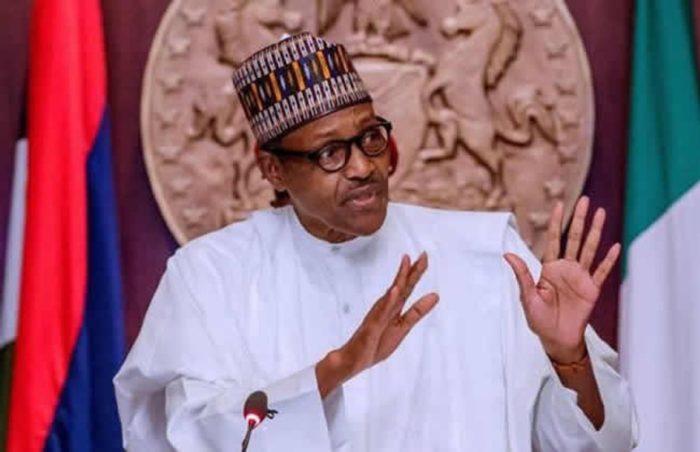President Muhammadu Buhari.
By Felix Onuah and Libby George
ABUJA, March 18 (Reuters) – The Federal Government of Nigeria has announced cut in the pump prices of petroleum products.
President Muhammadu Buhari approved the cut to 125 naira ($0.4085) a litre from 145 naira during a cabinet meeting on Wednesday.
Timipre Sylva, minister of state for petroleum, later issued a statement saying Nigerians should benefit from falling fuel costs, which he said were “a direct effect of the crash in global crude oil prices”.
“This action is being taken to cushion the economic impact of COVID-19 on our people,” he said.
International benchmark Brent crude on Wednesday reached a 16-year low close to $25 a barrel, dragged down by concerns about the impact of the coronavirus on the global economy, a collapse in oil demand and a supply glut.
State oil company the NNPC imports nearly all the gasoline in Nigeria, Africa’s largest economy and a major oil producer, because of price caps that mean marketers would lose money if they imported themselves.
The price cap typically costs the government millions because prices fluctuate on the international market and rarely stay at the capped level.
In the first half of 2019, the World Bank estimated the price caps cost the government 294 billion naira ($960.8 million), or nearly 0.2% of annual GDP.
The new price cap at the pump is roughly the level at which Nigeria’s Petroleum Products Pricing Regulatory Agency (PPPRA) pegged the cost of selling gasoline at depots as of March 13.
Additional costs are incurred to bring the fuel to the pumps, and the prices constantly fluctuate, meaning a lower cap risks costing money for a government that relies on oil exports for 90% of its foreign exchange, more than half of its revenues.
Already it is scrambling to revise its budget.
Facebook Comments





GIPHY App Key not set. Please check settings